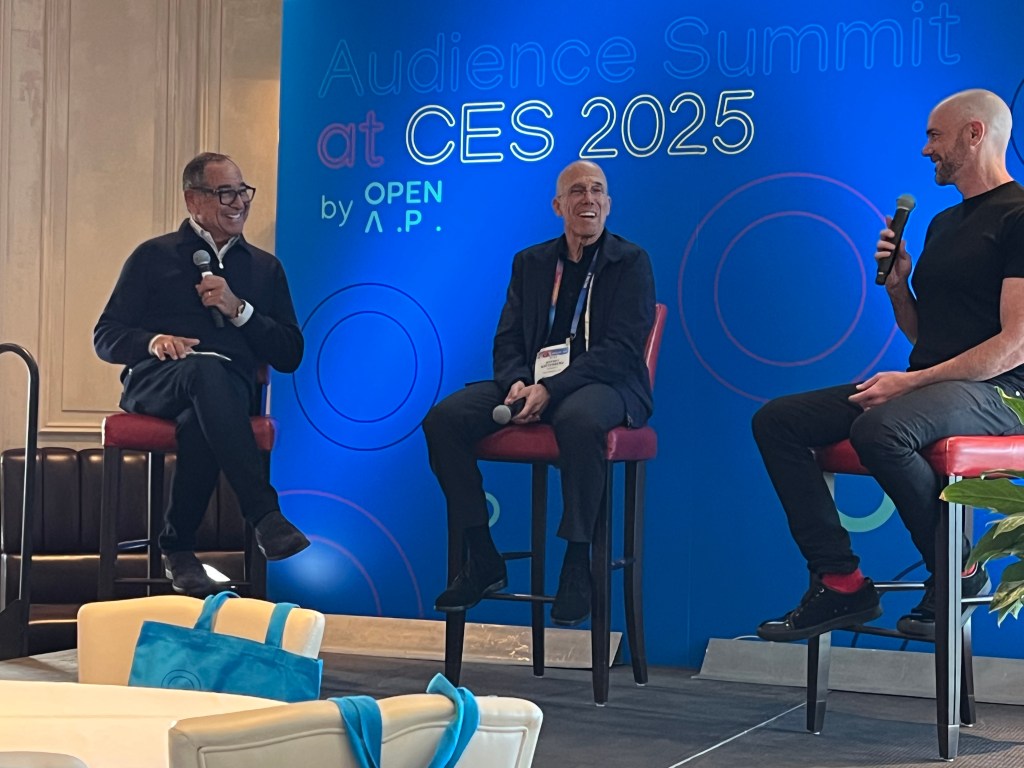The Great Divide: A Deep Dive Into Katzenberg and Yaccarino’s Clash Over Meta’s Fact-Checking Ban
This year’s Consumer Electronics Show (CES) revealed a significant rift among leading figures in the media and technology sectors regarding Meta’s controversial decision to eliminate fact-checking from its platforms. At the forefront of this debate were industry veterans Jeffrey Katzenberg and Linda Yaccarino, who presented starkly contrasting views on the implications of this shift. Katzenberg, a film and media mogul, warned that the absence of boundaries in content verification could lead to chaos, while Yaccarino, the CEO of the advertising powerhouse NBCUniversal, framed this change as an innovative opportunity for media. This article delves into their arguments, the broader implications of Meta’s decision, and what it means for the future of media and information dissemination.
The Context of the Debate
Meta’s move to eliminate fact-checking has sparked widespread concern, particularly in an era where misinformation can spread like wildfire across social media platforms. The decision comes amid growing scrutiny over the role of technology companies in moderating content and ensuring the integrity of information. As the digital landscape evolves, so too does the responsibility of these platforms to manage the information shared by their users.
Katzenberg’s Concerns: A Call for Boundaries
Jeffrey Katzenberg’s perspective centers around the necessity of boundaries in media. He argues that without effective fact-checking, the floodgates of misinformation could open, leading to societal chaos. Katzenberg stated, “No boundaries will ultimately fail,” highlighting his belief that the unchecked spread of information could erode trust in public discourse and lead to a fractured society.
Katzenberg’s career spans decades in the entertainment industry, where he has seen firsthand the power of media to shape public opinion. His concern reflects a broader anxiety among many industry leaders about the potential consequences of a free-for-all information environment. He emphasizes that media should serve as a reliable source of truth, not a battleground for unchecked opinions.
Yaccarino’s Vision: Embracing Innovation
On the flip side, Linda Yaccarino’s take on the situation is one of optimism and innovation. She views Meta’s fact-checking ban as an opportunity for new ideas and creativity in how information is shared and consumed. Yaccarino suggests that this shift could lead to more engaging content formats and a reimagining of how audiences interact with news and media.
Yaccarino’s stance reflects the changing dynamics of advertising and content creation. In her view, the future of media lies in adaptability and responsiveness to audience preferences. By removing the constraints of traditional fact-checking, she believes that creators may explore uncharted territories in storytelling and audience engagement.
The Broader Implications of Meta’s Decision
The clash between Katzenberg and Yaccarino raises vital questions about the future of media ethics and the role of technology companies in content moderation. As audiences increasingly rely on social media for news, the responsibility of platforms like Meta becomes more pronounced. The removal of fact-checking could have several consequences:
- Increased Misinformation: The absence of fact-checking may lead to a surge in false information circulating online, potentially influencing public opinion and decision-making.
- Trust Erosion: The credibility of information sources could diminish, resulting in a general distrust of media and platforms.
- Innovation vs. Ethics: While Yaccarino champions innovation, the ethical implications of unregulated content creation pose significant challenges.
The Role of Technology Companies in Content Moderation
As technology companies face mounting pressure to regulate content, the debate around fact-checking brings to light the complexities of moderation. Companies like Meta grapple with the balance between promoting free speech and ensuring accurate information dissemination. This dilemma is not new; however, the stakes are higher than ever in a world where misinformation can have real-world consequences.
Critics argue that by eliminating fact-checking, Meta is shirking its responsibility to its users. In a democratic society, access to accurate information is paramount. As such, companies must consider their role as gatekeepers of information. The question remains: how can they maintain this role without stifling innovation and free expression?
A Middle Ground: Finding Balance
Amid the clash between Katzenberg and Yaccarino, there lies an opportunity for dialogue and compromise. Perhaps the solution is not to fully embrace or reject fact-checking, but to find a middle ground that encourages innovation while upholding ethical standards in media. Some possible strategies might include:
- Collaborative Efforts: Technology companies could collaborate with independent fact-checkers to create a more nuanced approach to content moderation.
- Audience Empowerment: Educating users on how to critically evaluate information could empower audiences to discern fact from fiction.
- Innovative Formats: Exploring new content formats that prioritize transparency and accuracy may foster a healthier media ecosystem.
The great divide between Katzenberg and Yaccarino over Meta’s fact-checking ban encapsulates the ongoing tension in the media landscape. As leaders in their respective fields, their contrasting views underscore the complexities of navigating information in the digital age. On one hand, the need for boundaries and accurate information is critical; on the other, the drive for innovation and creativity is equally compelling.
As we move forward, it will be essential for industry stakeholders to engage in meaningful conversations about the future of media, balancing innovation with the responsibility to ensure that the information shared is trustworthy. The decisions made today will shape the media landscape for generations to come, and finding a way to bridge this divide could pave the way for a more informed and engaged society.
See more Future Tech Daily

